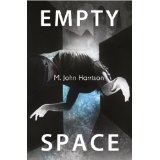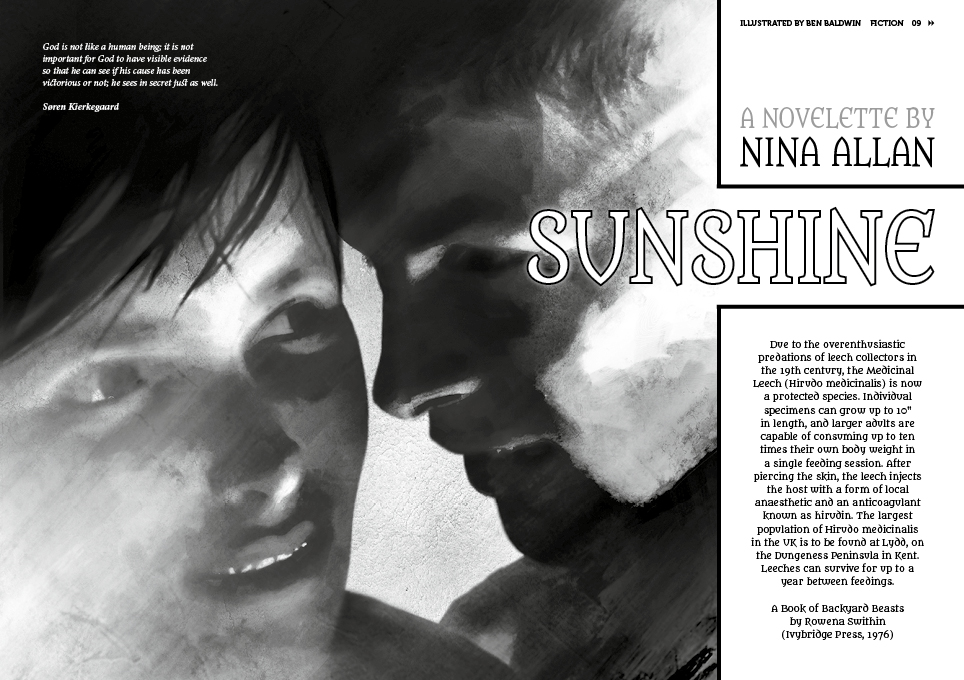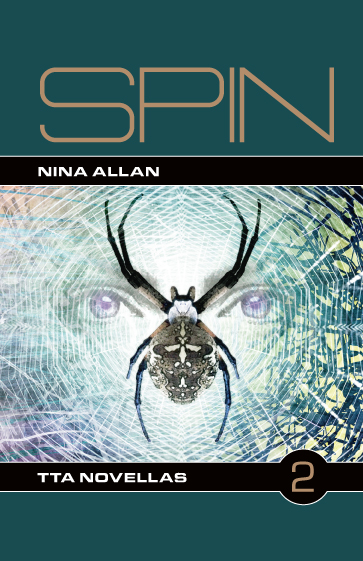M. John Harrison’s novel Empty Space, the final instalment in the Kefahuchi Tract trilogy, is published today.
The first thing I ever read by MJH was his story ‘The Ice Monkey’. I came upon the story completely by chance, in a second hand copy of an anthology called New Terrors 2. It was just a scrappy little Pan paperback, but I bought it the moment I saw it, firstly because it was edited by Ramsey Campbell and secondly because it contained a story by Christopher Priest (‘The Miraculous Cairn’) that I hadn’t read yet.
It’s interesting to look back at older anthologies (New Terrors 2 was first published in 1980) because they present a fascinating portrait of who has survived. NT2 contains stories by US horror stalwarts Robert Bloch and Charles L. Grant, both sadly no longer with us, both now members of horror’s hall of fame. There are a number of other stories by writers who were clearly promising at the time but who have since, for whatever reason, stopped publishing.
But of course it’s Priest and Harrison that stand out most strongly from this table of contents. Both young, both British, in 1980 both just getting into their stride, quite obviously these were the two to watch.I wonder what stories the anthologies of today will tell us in thirty years’ time?
‘The Ice Monkey’ bothered me. It bothered me because I’d never read anything like it before and I wasn’t quite sure what I was supposed to make of it. Here it was in a horror anthology, but although I found it acutely disturbing there was no way it could be placed in the same bracket as, say, the Charles L. Grant. Was it SF? Again, I wasn’t sure. It kind of reminded me of Ballard’s The Drought, another masterpiece I’d recently discovered, but it didn’t have anything so overtly SFnal as a world apocalypse going on in it.
I didn’t know what it was, but I knew it compelled and drew me and nagged at me. I knew I loved the writing, the imagery, that godawful abandoned house in the middle of an industrial wasteland. I knew that this, whatever the hell genre it was supposed to be, was the kind of story I wanted to be reading and learning about and I couldn’t keep away from it. I must have read that story three or four times right through before I could leave it alone. Subsequent to that I was thrilled to discover Signs of Life and, a little later, The Course of the Heart. I acquired MJH’s new collection Travel Arrangements as soon as it came out. I was sold.
When Light, the first book in what has come to be known as the Kefahuchi Tract trilogy, was first published in 2002 I bought it eagerly but found myself a little bemused. The Brian Kearney strand – prizewinning physicist becomes serial killer in order to fend off existential monster – was precisely the kind of stuff I’d come to expect from MJH, home turf, if you like. But the interwoven stories of Ed Chianese and Seria Mau Genlicher? What was I, so at home in the disintegrating worlds of Choe Ashton and Isobel Avens, to make of these far future montages, which seemed to me inextricably enmeshed in quantum ironies, so multilayered I could scarcely untangle them. They were also such…… fun. Fun makes me nervous. What was I supposed to do with it?
I wasn’t sure, so I kind of left my thoughts about the book in limbo. Nova Swing, when it appeared in 2006, I found easier to penetrate. It seemed to be a loving and awesomely creative riff on Arkady and Boris Strugatsky’s Roadside Picnic, a touchstone book for me since forever, and this presented me with a ‘way of reading’ the Light books that began to give me a clearer insight into what MJH was doing – with SF, with the trilogy, with his writing. On completing Nova Swing I read Light again and this time I got it immediately. I laughed, I cried (this is literally true) and it was a revelation. When I recently reread Light for a third time, as a preparation and a lead-in to reading the final act of the trilogy in Empty Space, I found it so good it was frightening, the kind of book that, as a writer, makes you sit down and bury your head in your arms and keep saying ‘shit.’
It’s hard to talk about Empty Space without referring back to the other two books, because of course you’ll find characters reappearing, story threads unravelling or, occasionally, tying themselves up, moods and places and events recurring in droves. But you’ll also find that Empty Space is a rather different kind of book from either of its two predecessors, which are both in turn rather different from one another. If Light was the definitive grand opera of space opera, the exact point where SF stops being SF and becomes proper metaphysics, and Nova Swing was an intrepidly successful experiment in time travel, both backwards and forwards, then Empty Space is a meditation, both a resolution and deconstruction of its own (totally awesome) internal narrative. If Light segued effortlessly into metaphysics, then Empty Space segues effortlessly into poetry. MJH has repeatedly cited T. S. Eliot as an early influence, and if Nova Swing takes you deeper into the Zone, Empty Space revisits ‘The Waste Land’, only not then, and more so.
You can read Empty Space – or either of the other two – perfectly well on its own. Its internal logic and poetry makes it complete and completely satisfying unto itself. But read one, and trust me you will demand to read the others!
In his recent interview with Simon Ings at ARCfinity, MJH talks about there being ‘no contradiction’ in his mind between the Light books ‘giving good value’ as space opera whilst at the same time making the whole concept of space opera rock in its foundations. To say that all three books – both singly and together – succeed, absolutely, on both levels is kind of a cataclysmic understatement. I loved the story of Empty Space, as story I was barely able to put it down. But Empty Space is so much more than just story. At a sentence level, as writing, Empty Space is like an infinite jewel casket. As a novel, it makes you pull up short and reappraise everything you’ve ever read or tried to write. As a statement on where we are now, where we are headed and what the fuck we think we’re going to be doing when we get there, Empty Space is a nostalgic reverie, a philosophical treatise, a thrown gauntlet.
Buy it and read it and start discussing it asap.



